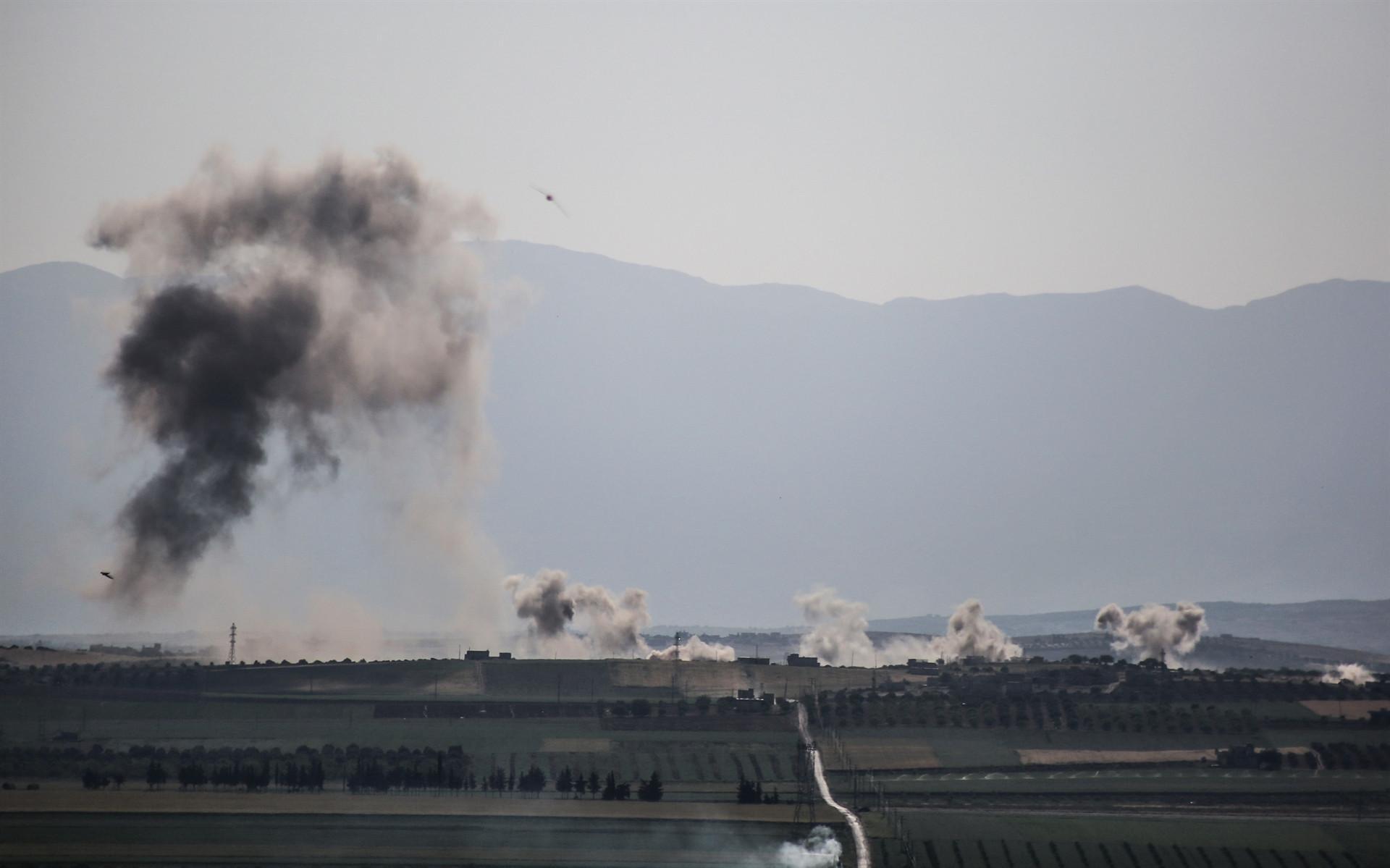
Turkish President Recep Tayyip Erdoğan discussed the latest developments in Idlib and measures to reduce tension in the area in Syria during a phone call with his Russian counterpart Vladimir Putin on May 13.
The Turkish president told Putin that the Syrian government “sought to sabotage Turkish-Russian cooperation” in Idlib by violating the ceasefire.
Erdoğan voiced concern over ceasefire violations in the past two weeks by forces of the Bashar al-Assad regime in the Idlib de-escalation zone, Turkey’s Presidential Communications Director Fahrettin Altun said on Twitter.
Erdoğan also noted that targeting civilians, schools and hospitals could not be considered fighting against terrorism.
He stressed that the Assad regime aimed to sabotage Turkish-Russian cooperation in Idlib and to harm the spirit of the Astana agreement, noting that rising tensions in the region would jeopardize the formation of a Constitutional Committee in Syria and the political process.
While the two leaders reaffirmed their commitment to the Sochi Agreement, Erdoğan said the attacks would harm their mutual goals.
A phone conversation between Defense Minister Hulusi Akar and his Russian counterpart followed Turkey’s Idlib diplomacy attempt on May 14. A Defense Ministry statement said that Akar and Sergey Shoigu also discussed measures to reduce tension in the area within the scope of the Sochi agreement and discussed regional security issues, as well.
Turkey and Russia agreed last September to turn Idlib into a de-escalation zone in which acts of aggression would be strictly prohibited. However, the deal faced many attacks by the Syrian regime who blames the opposition forces for violations of the ceasefire.
Syrian and Russian military planes started bombing the province on April 30. Russian officials publicly expressed their impatience with Idlib’s rebels, but said they oppose a major offensive.
A renewed wave of violence in northwestern Syria has killed more than 120 civilians. The offensive by the Syrian army and its allies, backed by Russia, has uprooted more than 150,000 people, the biggest escalation in the war since last summer.
Since April 28, a total of 18 health facilities have been struck, the U.N. Office for the Coordination of Humanitarian Affairs (OCHA) told Reuters on Monday. Two hospitals were hit twice. At least four health workers have been killed, and, as of Monday, the 18 health facilities - which collectively serve a minimum of 193,000 people - remain out of service, OCHA said.
As the guarantor of the Syrian regime, Russia is responsible for preventing attacks by regime forces and Iranian-backed militias in the last major rebel enclave, while Turkey takes its role for the rebels.